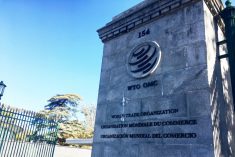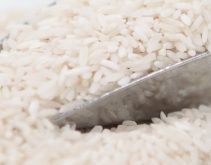Amsterdam | Reuters — The Dutch government on Wednesday ordered mink culled at nine farms where animals have been infected with the coronavirus, fearing they could form a reservoir of disease infecting humans after the country’s current outbreak has passed.
“Clearing the infected farms is in the interest of both human health and animal health,” Agriculture Minister Carola Schouten said in a letter to parliament, adding the cull would commence on Friday and farmers would be compensated.
Each farm houses several thousand of the ferret-like animals, which are bred for their fur.
Read Also

U.S. grains: Corn sets contract lows on expectations for big US crop
Chicago Board of Trade corn futures set contract lows and soybean futures sagged on Friday on expectations that beneficial weather for U.S. crops will lead to bumper harvests, analysts said.
“The Animal Welfare Commission has been informed and will see to it that the animals are treated in a responsible manner and killed,” Schouten said.
Coronavirus outbreaks have occurred on eight farms in the Netherlands, and Wednesday’s letter confirmed a ninth.
“The expectation is that further infections will be seen in the coming weeks,” Schouten said.
Last month her ministry reported two cases where mink were believed to have transmitted the disease to humans, in what are the only animal-to-human cases on record since the global outbreak began in China.
The outbreaks on the Dutch mink farms are all thought to have originated from their human handlers and then spread among the minks. The country’s National Institute for Health (RIVM) has said that the risk of animal-to-human and human-to-animal transmission remains “minimal.”
The Dutch mink farm outbreaks were first reported in April, when keepers noticed animals having difficulty breathing, prompting a wider investigation.
A law banning mink farming in the Netherlands was passed in 2013 and the remaining 120 farms are due to cease operations in 2023. The government said it is considering buying out the remaining mink farms and a preventative cull of their minks.
The Dutch mink industry says pelts are sold in European countries and to North America, with China an important growth market.
Canada, at the end of 2018, had 98 mink farms, down from 237 in 2014, according to Statistics Canada. Of those 98, 43 were in Nova Scotia and 28 in Ontario.
Canada’s National Farm Animal Care Council (NFACC) maintains a code of practice for the care and handling of farmed mink. A five-year review was completed in 2018.
NFACC, on its website, says the code is “currently undergoing an amendment” expected to be completed in March next year. Issues flagged as “major challenges” which are expected to be addressed in those amendments include pen sizes, access to nest boxes and methods of euthanizing mink.
— Toby Sterling is a Reuters correspondent in Amsterdam. Includes files from Glacier FarmMedia Network staff.















